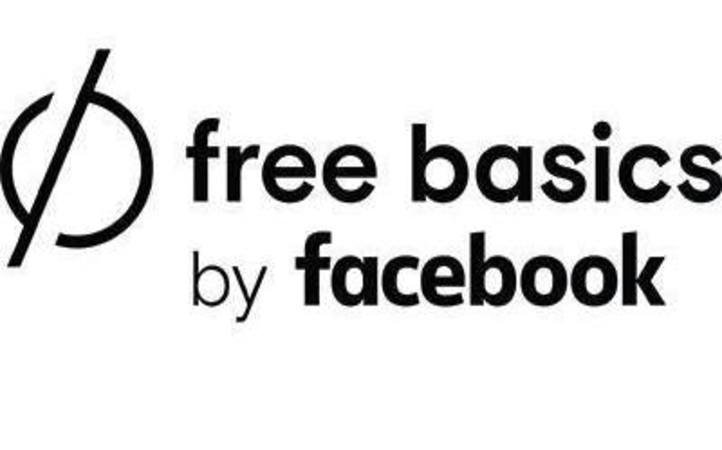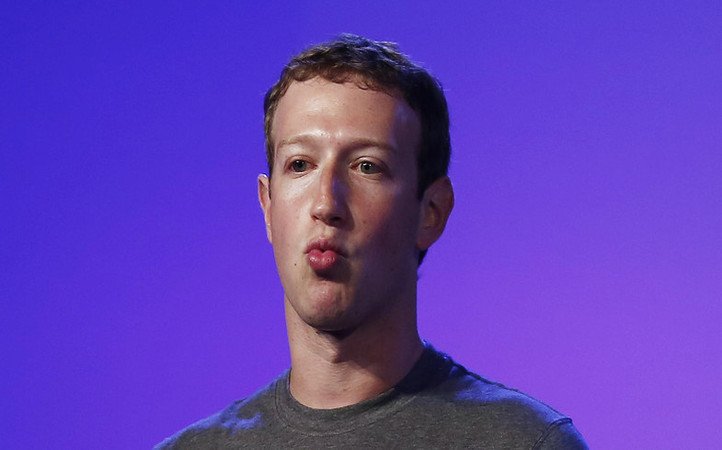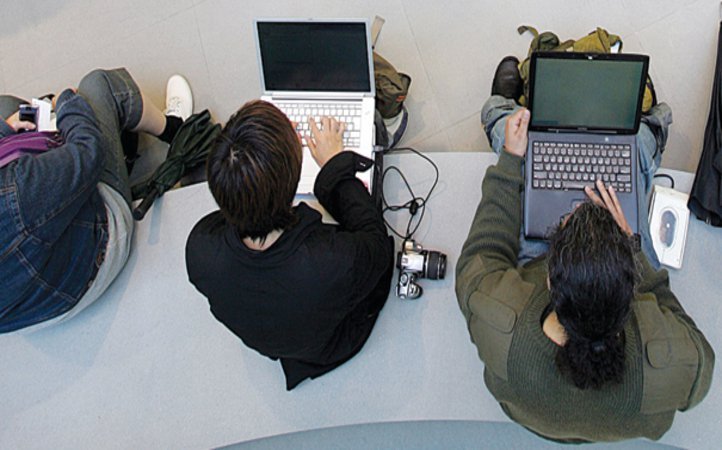Facebook’s ambitious project Free Basics, which claims to bring free internet for everyone, has been the topic of a heated debate and come under fire on different occasions.
Now, a large number of IIT and IISC professors have come together to issue a joint statement against what has been described as Facebook’s misleading and flawed ‘Free Basics’.

Here’s the full text.
Joint statement rejecting Facebook’s misleading and flawed ‘Free Basics’ proposal
Allowing a private entity

Flaw 1: Facebook defines what is ‘basic’.
The first obvious flaw in the proposal is that Facebook assumes control of defining what a ‘basic’ service is. They have in fact set up an interface for services to ‘submit’ themselves to Facebook for approval to be a ‘basic’ service. This means: what are the ‘basic’ digital services Indians will access using their own air waves will be decided by a private corporation, and that too one based on foreign soil. The sheer absurdity of this is too obvious to point out.
To draw an analogy, suppose a chocolate company wishes to provide ‘free basic food’ for all Indians, but retains control of what constitutes ‘basic’ food — this would clearly be absurd. Further, if the same company defines its own brand of ‘toffee’ as a ‘basic’ food, it would be doubly absurd and its motives highly questionable. While the Internet is not as essential as food, that the Internet is a public utility touching the lives of rich and poor alike cannot be denied. What Facebook is proposing to do with this public utility is no different from the hypothetical chocolate company.

In fact, it has defined itself to be the first ‘basic’ service, as evident from Reliance’s ads on Free Facebook. Now, it will require quite a stretch of imagination to classify Facebook as ‘basic’. This is why Facebook’s own ad script writers have prompted Mr. Zuckerberg to instead make emotional appeals of education and healthcare for the poor Indian masses; these appeals are misleading, to say the least.
Flaw 2: Facebook will have access to all your apps’ contents.
The second major flaw in the model, is that Facebook would be able to decrypt the contents of the ‘basic’ apps on its servers. This flaw is not visible to the lay person as it’s a technical detail, but it has deep and disturbing implications. Since Facebook can access un-encrypted contents of users’ ‘basic’ services, either we get to consider health apps to be not basic, or risk revealing health records of all Indians to Facebook.
Either we get to consider our banking apps to be not ‘basic’, or risk exposing the financial information of all Indians to Facebook. And so on. This is mind boggling even under normal circumstances, and even more so considering the recent internal and international snooping activities by the NSA in the US.
3. Flaw 3: It’s not free.
The third flaw is that the term ‘free’ in ‘free basics’ is a marketing gimmick. If you see an ad which says ‘buy a bottle of hair oil, get a comb free’, you know that the cost of the comb is added somewhere. If something comes for free, its cost has to appear somewhere else. Telecom operators will have to recover the cost of ‘free basic’ apps from the non-free services (otherwise, why not make everything free?). So effectively, whatever Facebook does not consider ‘basic’ will cost more.

If Facebook gets to decide what costs how much, in effect Indians will be surrendering their digital freedom, and freedom in the digital economy, to Facebook. So this is not an issue of elite Indians able to pay for the Internet versus poor Indians, as Facebook is trying to portray. It is an issue of whether all Indians want to surrender their digital freedom to Facebook.
That the ‘Free Basics’ proposal is flawed as above is alarming but not surprising, for it violates one of the core architectural principles of Internet design: net neutrality. Compromising net neutrality, an important design principle of the Internet, would invariably lead to deep consequences on people’s freedom to access and use information. We therefore urge that the TRAI should support net neutrality in its strongest form, and thoroughly reject Facebook’s ‘free basics’ proposal.
Signed by:
- Krithi Ramamritham, Professor, CSE, IIT Bombay
- Bhaskaran Raman, Professor, CSE, IIT Bombay
- Siddhartha Chaudhuri, Assistant Professor, CSE, IIT Bombay
- Ashwin Gumaste, Associate Professor, CSE, IIT Bombay
- Kameswari Chebrolu, Associate Professor, CSE, IIT Bombay
- Uday Khedker, Professor, CSE, IIT Bombay
- Madhu N. Belur, Professor, EE, IIT Bombay
- Mukul Chandorkar, Professor, EE, IIT Bombay
- Amitabha Bagchi, Associate Professor, CS&E, IIT Delhi
- Vinay Ribeiro, Associate Professor, CS&E, IIT Delhi
- Niloy Ganguly, Professor, CS&E, IIT Kharagpur
- Animesh Kumar, Assistant Professor, EE, IIT Bombay
- Animesh Mukherjee, Assistant Professor, CSE, IIT Kharagpur
- Subhashis Banerjee, Professor, CSE, IIT Delhi
- Shivaram Kalyanakrishnan, Assistant Professor, CSE, IIT Bombay
- Saswat Chakrabarti, Professor, GSSST, IIT Kharagpur
- H.Narayanan, Professor, EE, I.I.T Bombay
- Vinayak Naik, Associate Professor, CSE, IIIT-Delhi
- Aurobinda Routray, Professor, EE, IIT Kharagpur
- Naveen Garg, Professor, IIT Delhi
- Amarjeet Singh, Assistant Professor, CSE, IIIT-Delhi
- Purushottam Kulkarni, Associate Professor, CSE, IIT Bombay
- Supratik Chakraborty, Professor, CSE, IIT Bombay
- Kavi Arya, Associate Professor, CSE, IIT Bombay
- S. Akshay, Assistant Professor, CSE, IIT Bombay
- Jyoti Sinha, Visiting Faculty, Robotics, IIIT Delhi
- Joydeep Chandra, Assistant Professor, CSE, IIT Patna
- Parag Chaudhuri, Associate Professor, CSE, IIT Bombay
- Rajiv Raman, Assistant Professor, IIIT-Delhi
- Mayank Vatsa, Associate Professor, IIIT-Delhi
- Anirban Mukherjee, Associate Professor, EE, IIT Kharagpur
- Pushpendra Singh, Associate Professor, IIIT-Delhi
- Partha Pratim Das, Professor, CSE, IIT Kharagpur
- Dheeraj Sanghi, Professor, IIIT Delhi
- Karabi Biswas, Associate Professor, EE, IIT Kharagpur
- Bikash Kumar Dey, Professor, EE, IIT Bombay
- Mohammad Hashmi, Assistant Professor, ECE, IIIT Delhi
- Venu Madhav Govindu, Assistant Professor, EE, IISc Bengaluru
- Murali Krishna Ramanathan, Assistant Professor, CSA, IISc Bangalore
- Sridhar Iyer, Professor, IIT Bombay
- Sujay Deb, Assistant Professor, ECE, IIIT Delhi
- Virendra Sule, Professor, EE, IIT Bombay
- Om Damani, Associate Professor, CSE, IIT Bombay
- V Rajbabu, Assistant Professor, EE, IIT Bombay
- Hema Murthy, Professor, CSE, IIT Madras
- Anupam Basu, Professor, CSE, IIT Kharagpur
- Sriram Srinivasan, Adjunct Professor, CSE, IIT Bombay
- K.V.S. Hari, Professor, ECE, IISc, Bengaluru
- Shalabh Gupta, Associate Professor, EE, IIT Bombay
- Suman Kumar Maji, Assistant Professor, IIT Patna
- Udayan Ganguly, Associate Professor, IIT Bombay
- Rahul Banerjee, Professor, CSE, BITS Pilani
- R K. Shevgaonkar, Professor, EE, IIT Bombay
- S.C. Gupta, Visiting Faculty, CSE, IIT Delhi
- Ashutosh Gupta, Reader, STCS, TIFR
- V Krishna Nandivada, Associate Professor, CSE, IIT Madras
- Ashutosh Trivedi, Assistant Professor, IIT Bombay
- Ganesh Ramakrishnan, Associate Professor, IIT Bombay
- Amit Patra, Professor, EE, IIT Kharagpur
- Jayalal Sarma, Assistant Professor, CSE, IIT Madras
- Rajesh Sundaresan, Associate Professor, IISc Bangalore
- Deepak Khemani, Professor, IIT Madras
- Vinod Prabhakaran, Reader, TIFR
- Saroj Kaushik, Professor, IIT Delhi
- Kumar Appaiah, Assistant Professor, EE, IIT Bombay
- Bijendra N Jain, IIT Delhi
- Nupur Dasgupta, Professor, Jadavpur University
- Aaditeshwar Seth, Assistant Professor, IIT Delhi
- C.Chandra Sekhar, Professor, CSE, IIT Madras
- Pralay Mitra , Assistant Professor, CSE, IIT Kharagpur
- Krishna Jagannathan, Assistant Professor, Electrical Engineering, IIT Madras
- Venkatesh Tamarapalli, Assistant Professor, CSE, IIT Guwahati
- Ajit Rajwade, Assistant Professor, CSE, IIT Bombay
- D. Manjunath, Professor, EE, IIT Bombay
- Subhasis Chaudhuri, EE, IIT Bombay
- S. Arun-Kumar, Professor, CS&E, IIT Delhi
- Alka Hingorani, Associate Professor, IIT-Bombay
- Swaroop Ganguly, Associate Professor, EE, IIT Bombay

















